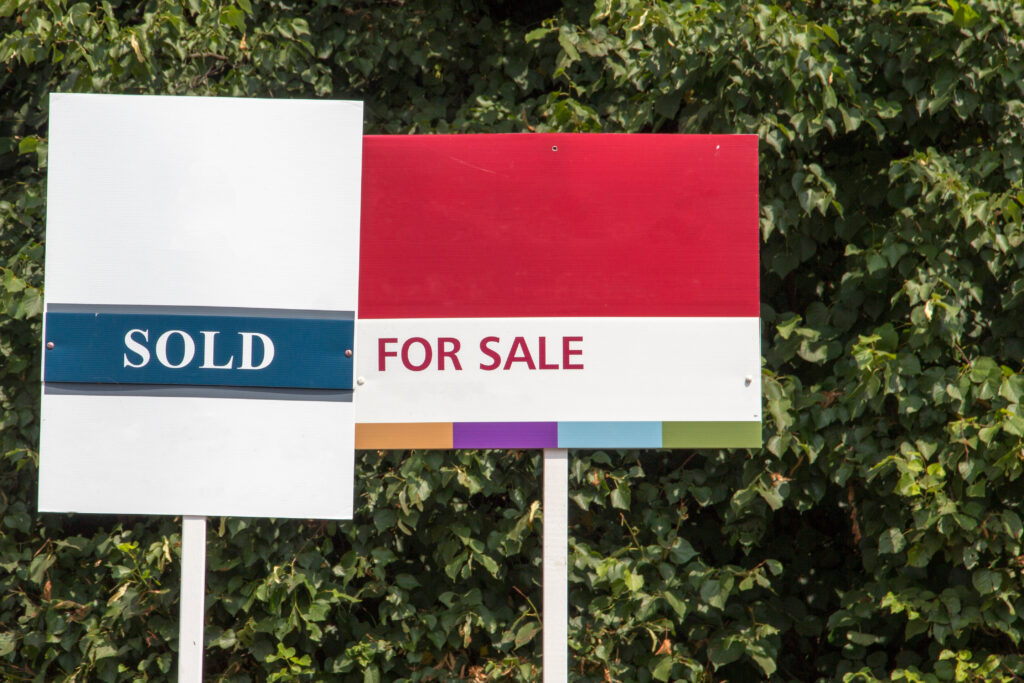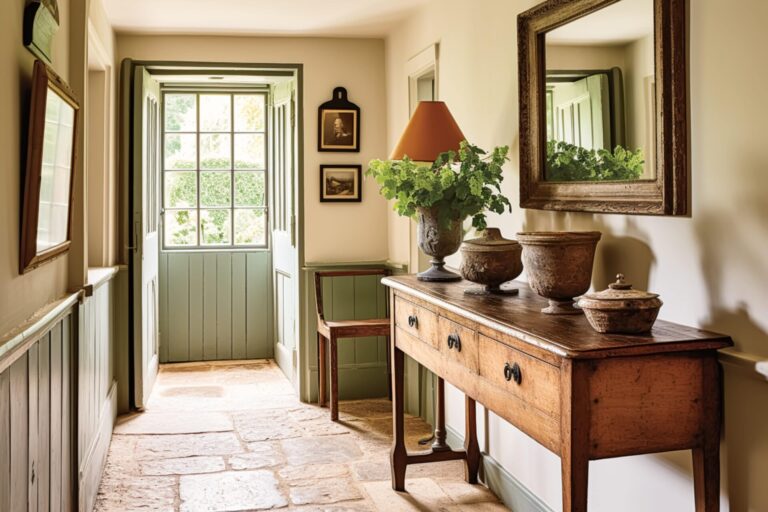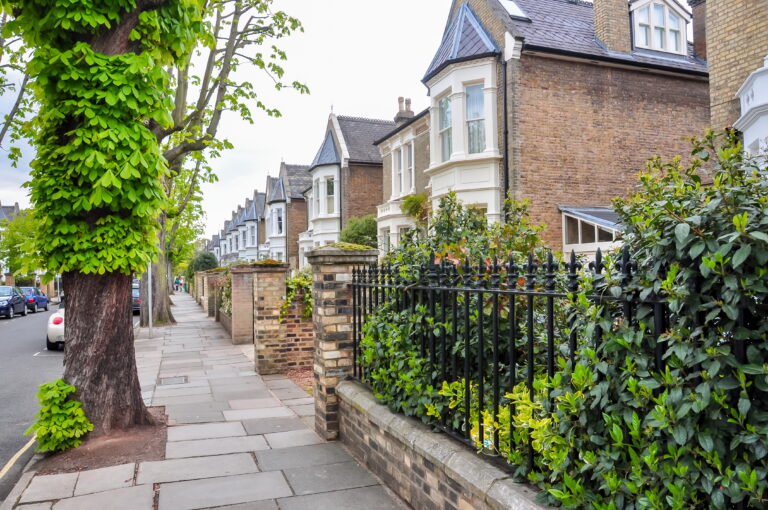When you’re keen to move, you want your house to sell as quickly as possible. Once you start getting viewers in your home, you can’t help but wonder when you’ll receive the offer you’ve been waiting for. It’s an exciting time, but it can also feel stressful because there are so many factors involved that are beyond your control.
When considering the length of time it takes to sell a property, it’s best to break it down into two distinct stages; how long it will take to find a buyer, and how long the conveyancing period (the legal and administration side) will take.
Read our guide below to learn more about the various factors that affect how long it takes to sell a house.
How long does it take for a house to sell on average
The average amount of time it takes to sell a house is 18 weeks, which is just over four months.
However, there are many factors that affect the timeline of a house sale. The first factor is finding the right buyer for your property. The amount of time this takes is affected by where your house is located, what condition it’s in, the price you’ve put your house up for, and how hot or cold the market is.
Once you’ve accepted an offer, the timescale is then impacted by how efficient your conveyancer is, how proactive your estate agent is, and how many people are in your property chain.
How long does it take to complete a house sale
Completion is the final stage of the house selling process; it’s the day that you receive the money from the sale, leave the property and hand over the keys.
Your completion date is agreed between you and your buyer when you exchange contracts. Exchanging contracts is known as the point of no return for a house sale because this is when the buyer pays their deposit and the sale becomes legally binding.
Completion usually takes place about two weeks after contracts are exchanged, but in some circumstances it can take up to four weeks. The completion date tends to be set for a weekday rather than a weekend so that the bank can transfer the money and you can receive confirmation of the funds.
Things that may affect the time it takes to sell a house
· The asking price
This is one of the biggest factors affecting how long it will take to sell your home. Understandably, you want to make money from your property by getting the best price possible for it, but if you put your house on the market with an asking price that’s too high, you’ll put people off making an offer.
The great news is that the asking price is something that’s very much within your control. Talk to your estate agent about similar properties in the area and find out what they’ve sold for. You can then discuss your property and find out what they think is a realistic property value for your home in today’s market.
Sometimes, it can be worth having an asking price that’s slightly lower that your property’s true value because it can generate a lot of interest. It may even end up with a bidding war, and these tend to drive the price up higher than you might expect.
· The current housing market
The housing market is something that’s completely beyond your control, but it’s something to be aware of so that you price your house to sell and you manage your expectations.
When the housing market is hot, plenty of properties are going on the market and they’re selling quickly because there’s a real demand for them. This allows you to put your house up for an optimistic price and to feel fairly confident that you’ll get it. However, in a cold market, fewer properties are going up and buyers often have the upper hand. They can pick and choose between properties at the price that suits them, because when things are slow, people have to give their properties a conservative price in order to sell.
· Your solicitor
When choosing your solicitor, do your research and read customer reviews. Try not to base your choice purely on price (if possible) because sometimes you can save a lot of time by paying a little more. Solicitors with impressive track records are far more likely to work faster and more efficiently for you, and this gives you the best chance of a quick house sale.
· The property chain
A property chain is the line of properties that are connected by being bought and sold at the same time, when one affects the other. For example, if the person buying your property is also selling a house, that house is in your property chain because it could impact the timeline of your sale. Additionally, if you’re buying another property, this is also in the property chain because it could have an effect on the process too. The longer the chain is, the more complicated it is and there’s a higher chance of problems arising and delays happening.
· Holidays
If your sale takes place over the holiday season this could easily delay things. This is because people within the process are away and won’t be there to provide information at the right time, or to push paperwork through.
· Surveys
Your buyer's house survey could reveal issues with the property that you weren’t aware of. This could either delay the sale whilst the issues are resolved (or the house price is adjusted) or in extreme cases it could cause the house sale to fall through completely.
· An overpriced property
If the buyer’s mortgage lender doesn’t think your property’s worth the price that’s been offered, this can cause delays. The mortgage lender won’t provide funds above what they believe the property’s value is, so you may need to renegotiate the price or the buyer might need to find additional funds to make up the difference.
· Paperwork
Finding all the guarantees and various bits of paperwork you need for the sale can take time. If you’re struggling to get all of these bits and pieces together, or if you don’t complete forms quickly and accurately, this may slow things down for you.
Tips for selling a house quickly
Choose a trusted estate agent
When you’re inviting professional estate agents to value your home, make sure you ask them a lot of questions about their experience in the area. They should provide you with examples of similar properties they’ve sold nearby and this should back up the sale price that they quote for your home.
It’s easy to get swayed by a higher house price, but this won’t always go in your favour; it needs to be priced competitively to gain interest and to ensure that mortgage providers will agree to it.
Your estate agent should provide you with professional photography and excellent marketing plans in order to attract buyers for your home. Once you’ve accepted an offer, some estate agents can also provide conveyancing services like we do at Hunters, and having this service in-house can help your sale to go through smoothly and efficiently.
Present your property well
Houses that are staged for selling look incredibly welcoming because they’re presented in their best light. If your home is in good condition, and it’s clean and clutter free, it has a much better chance of selling quickly.
Accept your offer wisely
Be selective about the offer you choose to accept. If you want a quick sale, try to make sure that your buyer is chain-free or even better, opt for a cash buyer if you can.
Be present
If you want the sale to go through as quickly as possible then make sure you’re around for the entire process. Be there to answer questions and to fill in any paperwork as soon as it’s requested.
Your next move
If you’re buying another property straight away then you need to be extremely organised. Have your mortgage agreement in principle ready and then go out and find the right property for you. Once you’ve found the right home, make a good offer, and once it’s accepted, get the survey done as soon as possible. As soon as you exchange contracts and agree your completion date, get your removals company booked in so you’re ready to go.
However, if you don’t want to buy somewhere else immediately then you could rent a property for a while. This takes the pressure off and gives you more time to find the right house for you.
Energy Performance Certificate (EPC)
When you sell a property you must provide a valid EPC. These stay valid for 10 years so check the EPC register to see if your home already has one or not.
If you’re thinking of putting your house on the market then get started now with a free property valuation so you know exactly what your property’s worth.




